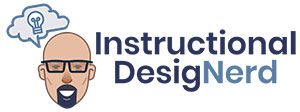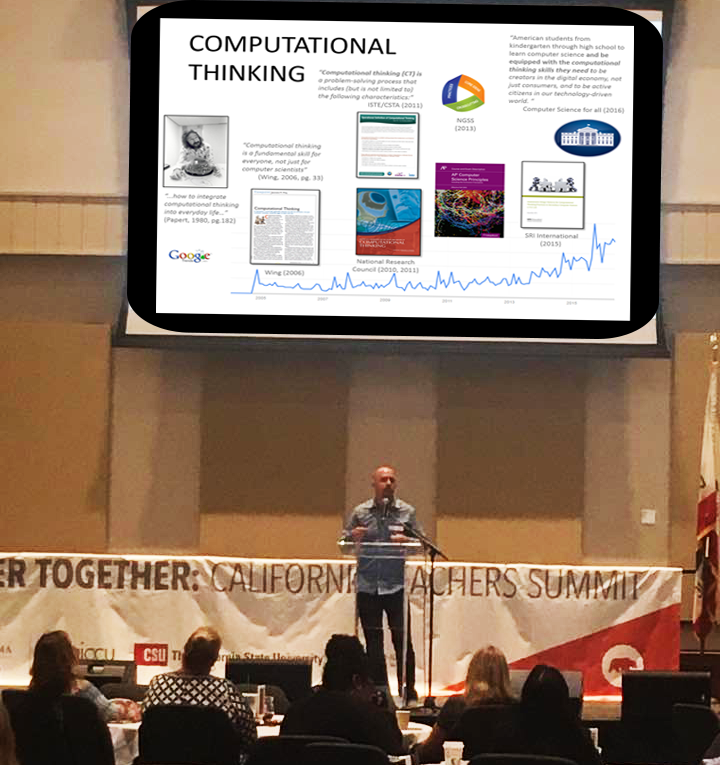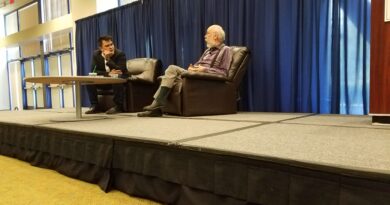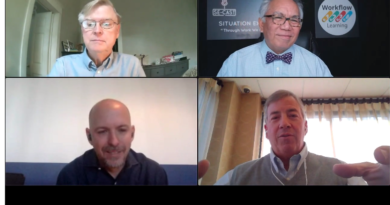The Future of Online Education: Where do we go from here?
The following is a short article published in the June Edition of the Ashford University Faculty Focus.
Danish physicist, Niels Bohr, said “It is difficult to make predictions, especially about the future.”
Even so, the research taking place now surrounding trends, innovations, and disruptions that are happening today will likely impact our practices and thinking about online education tomorrow. I’d like to highlight a few of these potential changes for your consideration. In order to situate these predictions into the greater prediction of the environment, a brief examination of how technological advancements and change within the workforce will drive some degree of the changes to learning, both online and on-ground, is provided.
Whether you think of the proliferation of smartphones, virtual assistants like Siri, Alexa, and others, the impending potential impact of artificial-intelligence fueled, self-driving cars, one is compelled to notice the increasing connection and innervation of technology within our lives. We have already seen some changes as a result of these shifts which have manifest in shifts within the marketplace and consequently the workforce.
For example, taxi drivers are being slowly replaced by Uber and Lyft drivers, who are predicted to eventually be replaced by self-driving cars. It is possible that all cars will have full self-driving capability, potentially within a span of a few decades. If we fast forward a few years, it’s easy to imagine how the change to automated transportation might trigger changes in one segment of the educational landscape. If self-driving transportation becomes scaled, any form of driving school is likely to be phased out, while schools teaching the skills to programing and maintain self-driving technologies will likely be on the rise.
Research in the learning sciences has shown that to be able to develop mastery within a domain of practice, we must engage in active practice and refinement of our performance, typically under the guidance of an expert. Unfortunately, our current model of school has historically been designed more to transmit information instead of building applicable real-world skills.
One of my favorite education memes mocks the fact that we’ve all spent years working on math problems with parallelograms, and yet, there is no parallelogram season. Instead there is a tax season which students aren’t formally prepared for, despite the fact that tax season can be anticipated to repeat itself ad-nauseam until death. Though it no longer serves us well, in school, we learn ABOUT the world more than we learn HOW TO ACT meaningfully in it. Students spend years practicing things and developing skills that hardly, if ever, manifest directly in the real world: for example, students spend their time writing academic papers, taking quizzes, and tests that prove they can remember concepts and information (at least for short periods of time)
If we wish to transfer the focus of formalized education from learning more than facts to developing related skills and attitudes, we must fundamentally shift our models of teaching and learning to those that begin to prepare students for the complexity and evolving nature of our world. While this seems like an exciting and potentially invigorating pressure for educators and systems of education to evolve (and it is), it’s important to recognize that we are an organization comprised of human beings, creatures of habit in mind and practice.
Changing our model of learning will mean diverging from long held beliefs and deeply enculturated practices to acknowledge that in many cases, now the answers are no longer in the back of the book. This will require an open mind, a careful eye on data and feedback of all sorts, and perhaps the most important, a willingness to reimagine what learning can look like that may not look anything like what you’ve been a part of in the past.
A few of the trends driven by these shifts are:
- Project-based and problem-based learning;
- Video-based mentorship and multimedia development and curation, and;
- Scenarios, simulations, and gameful learning.
One example of this shift has manifest in the redesign of BUS401 as part of an adaptive learning course pilot currently underway at Ashford University. With direct contact and mentoring from the instructor through asynchronous video-based exchanges, the focus has been shifted from the acquisition of fixed knowledge for future application, to the application of knowledge in a specific and relevant context. Each week, the need for the assignment deliverable is situated within a micro-learning scenario that provides helpful context and purpose for the tasks at hand. Through this shift, students are able to build culturally-relevant artifacts, demonstrate agency, and tailor their learning to their particular interests. This is good learning.
From the teaching and mentoring perspective, these projects and mentoring sessions provide rich data that allows for deep and meaningful assessment outside of the assignment rubric. These opportunities for connection, trust, and collaboration not only improve learning and experience—these opportunities improve the students’ own perception of their abilities and evolution of their identity within the domain of practice.
Through active construction of knowledge anchored in real world experience and artifacts, students will be better prepared to enter the workforce as contributors in their given discipline or field. This is critical for us to realize, as students and consumers in general will more carefully weigh their options in the marketplace. This particular design model doesn’t solve all of our current issues, and, as all changes do, the model brings with it a new set of operational and logistical challenges. One thing that it, and other innovation pilots, have shown us is that designs, based in research from the learning sciences, help to humanize the learning experience in ways that significantly impact several desirable outcomes.
When it comes to student learning in the near and distant future, my hope is to see more of a focus on providing students with agency, more opportunities for real-world application, and focus on skills and/or practices being leveraged in the domain of study. Our students are counting on us to prepare them for the future, and I hope you’ll join me in supporting them in these efforts.
Michael Kolodziej, Ed.D.





